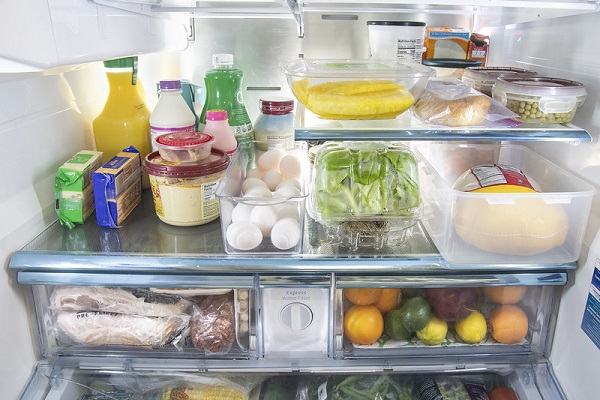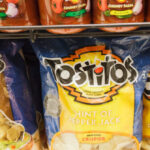
–>
May 27, 2022
What if the lights go out this summer? How much food gets lost?
‘); googletag.cmd.push(function () { googletag.display(‘div-gpt-ad-1609268089992-0’); }); }
In February 2021, I wrote on the near collapse of the Texas electric grid and asked this rhetorical question: “how would you and your family like to be trapped in your car at 16 degrees below zero?”
Given that it is summertime, and the living is theoretically easy, let me ask another one. If the lights go out, how much refrigerated food will you lose? Similarly, will you be able to replace lost food?
We have all seen huge food price increases and heard media reports of the potential for massive food shortages. Among the many reasons, the Russian-Ukraine war taking out the “breadbasket of Europe” and simultaneously dramatically reducing critical fertilizers products looms large. With no end in sight, this war will significantly impact global food supplies for some time.
‘); googletag.cmd.push(function () { googletag.display(‘div-gpt-ad-1609270365559-0’); }); }
Other global factors are also in play. Flooding in China has had a detrimental impact on Chinese crops, and China has limited fertilizer usage in some fields. Also, China is still recovering from a dramatic loss of its swine herds due to swine flu epidemics, creating a potential protein shortage. No idea what the lockdowns will do.
India, one of the larger grain exporters, has placed severe restrictions on its exports to ensure adequate domestic food supplies. Food riots in Sri Lanka are occurring.
Globally, the prices of grains are rising dramatically, creating the potential for almost unimaginable misery among the world’s poorest.
Closer to home, U.S. fertilizer prices have risen dramatically, in some cases fourfold in the last few years. This not only creates huge upward price pressures, but impacts usage, potentially impacting yields.
Also Union Pacific has reduced major U.S. fertilizer companies, like CF Industries, one of America’s largest, to shipping about 80% of their potential volumes. This can result in some of America’s premier farmlands, the Corn Belt, not getting adequate fertilizer during the critical spring planting season.
Ironically, “Union Pacific has said it is limiting rail traffic and hiring aggressively as part of a plan to improve service after grain and ethanol shippers complained about shortcomings.” So U.P. is limiting the food supply to further limit the food supply by converting more corn into ethanol — a devil’s twofer. And the Biden administration plans to increase ethanol limits. A threefer.
‘); googletag.cmd.push(function () { googletag.display(‘div-gpt-ad-1609268078422-0’); }); } if (publir_show_ads) { document.write(“
With bird flu resulting in millions of chickens being killed and with numerous fires at food processing plants reducing processing capacity, supplies of eggs and chickens are also under assault. Add in record high diesel fuel prices and historically low inventories, and everywhere you look, the food system is stressed.
Not only is the food system under stress, but so is the electric system. The National Electric Reliability Council (NERC) recently came out with it 2022 Summer Risk Assessment (SRA). The NERC SRA highlighted that almost all of the areas west of Michigan, on a line south roughly along the Illinois-Indiana border to the Gulf, are either at high risk or elevated risk of energy emergencies this summer. The reasons vary by area, but the bottom line is that a lot of the country is at risk of power problems.
While the loss of critical electricity-based services can be literally life-threatening, I wondered what would happen to already stressed food supplies if the power goes out. Basically, I tried to figure out how much food would be lost if the lights went out long enough to kill refrigerated and frozen foods. I will freely admit that my calculations are highly subjective and almost certainly subject to challenge, but I made a shot at it that might be useful. I would love to learn of better numbers, but here is my approach.
Using Bureau of Labor Statistics numbers, as reported in Value Penguin, I was able to break down by product category an average 2013 family’s monthly food expenditures (according to Value Penguin, the most recent values available). I then put a weighting factor that represented what I thought was a reasonable percentage of a product category that was refrigerated. For some products, like milk or eggs, 100% of the product would be impacted by sustained power outages. Other product categories, such as nuts and canned goods, would have zero percent spoilage in a blackout. On some products that weren’t so clear, I tried to guess, hopefully conservatively.
I then summarized the potential losses across all categories and determined that at-home losses would be about 52% of monthly at-home expenditures. I arbitrarily assumed that outside-the-home food purchases were at a 75% refrigerated factor, my logic being that you go out for cooked fresh food, not canned items.
I then updated the actual dollar amounts for the BLS total food expenditures of approximately 1.69 billion dollars for 2020. Using the same factors of 52% of home expenditures and 75% of out-of-the-home food purchases, I assumed about a one-month inventory of these refrigerated foods.
I assumed about a one-month inventory throughout the whole refrigerated supply chain resulting in about $89 billion. Dividing that by 330 million people, I came up with an estimated monthly refrigerated inventory of about $270 per person that would be lost. While obviously the entire national grid will not collapse, I thought the average loss per person would give an indication of what would happen on average in any given blacked out area.
There are obviously huge regional differences, like in Nancy Pelosi’s $20,000 refrigerator, but this number may be useful anyway. If a family of four loses about $1,000 of refrigerated food in a blackout, that could have a substantial budget impact. While some of the lost product will be in other parts of the already stressed supply chain, such as the grocery stores or restaurants, assuming they lost power, too, eventually those expenses will get passed on to the consumers.
I will freely admit that there are a lot of questionable assumptions in this calculation, but having lost power and dumped food in the past, it seems to have some basis in reality. It does give a shot at “how much food would be lost if the lights went out?”
As mentioned in the previous article, as many as 20,000,000 Texans almost lost power in 2021 due to unreliable wind power, probably for months. Twenty million times $270 each equals $5.4 billion, not exactly chickenfeed.
It doesn’t come close to answering “will you be able to replace lost food?” That is a question way beyond my simple analysis. Given the supply constraints mentioned above, what’s your answer?
I always come back to the historian Alfred Henry Lewis, who stated In 1906, “There are only nine meals between mankind and anarchy.” And that was before refrigeration and a power grid based on unreliable wind power and fairly tales.

Image via Flickr, public domain.
<!– if(page_width_onload <= 479) { document.write("
“); googletag.cmd.push(function() { googletag.display(‘div-gpt-ad-1345489840937-4’); }); } –> If you experience technical problems, please write to helpdesk@americanthinker.com
FOLLOW US ON
<!–
–>
<!– _qoptions={ qacct:”p-9bKF-NgTuSFM6″ }; ![]() –> <!—-> <!– var addthis_share = { email_template: “new_template” } –>
–> <!—-> <!– var addthis_share = { email_template: “new_template” } –>





